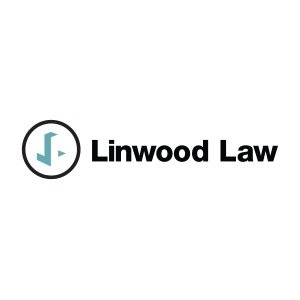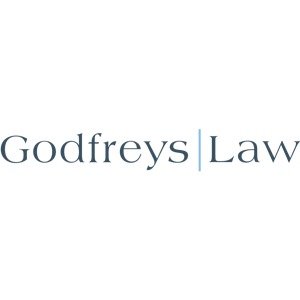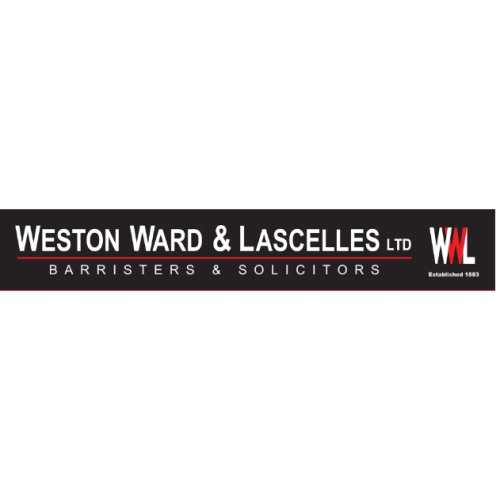Best Restructuring & Insolvency Lawyers in Christchurch
Share your needs with us, get contacted by law firms.
Free. Takes 2 min.
List of the best lawyers in Christchurch, New Zealand
About Restructuring & Insolvency Law in Christchurch, New Zealand
Restructuring and insolvency law in Christchurch, New Zealand, is focused on helping individuals, businesses, and companies address financial distress, manage debt, and navigate the legal processes surrounding insolvency. Restructuring refers to reorganising a business’s operations or finances to improve efficiency and profitability or to address financial hardship. Insolvency occurs when an individual or business can no longer pay debts as they fall due. Christchurch, being a significant commercial hub in the South Island, has a range of legal professionals experienced in assisting both businesses and individuals through these complex challenges in compliance with New Zealand law.
Why You May Need a Lawyer
There are many situations in which you might require legal assistance for restructuring and insolvency matters in Christchurch. Some common scenarios include:
- Facing threats of bankruptcy or liquidation from creditors
- Needing advice on voluntary administration or receivership for a struggling company
- Negotiating repayment agreements with creditors
- Disputes over personal guarantees or director liability
- Business owners looking to restructure their company to avoid insolvency
- Addressing personal insolvency issues, such as proposing a debt repayment plan or filing for bankruptcy
- Assisting with the legal requirements to comply with the Companies Act 1993 and the Insolvency Act 2006
A lawyer can provide guidance, represent your interests, help protect your rights, and give practical solutions tailored to your situation.
Local Laws Overview
Restructuring and insolvency laws in Christchurch are governed by several key statutes and legal principles that also apply across New Zealand. Some of the most relevant aspects include:
- Companies Act 1993 - Contains provisions for liquidation, voluntary administration, and receivership of companies.
- Insolvency Act 2006 - Covers personal insolvency, including bankruptcy and alternative debt repayment procedures.
- Credit Contracts and Consumer Finance Act 2003 - Deals with consumer credit contracts and rights when facing hardship.
- Personal Property Securities Act 1999 - Sets out creditors’ security interests in personal property.
- Local court rules and practice notes guiding insolvency procedures in the Christchurch High Court.
- Obligations and protections for company directors, creditors, and employees during financial distress.
Christchurch residents and businesses must comply with these laws when seeking to resolve financial difficulties through restructuring or insolvency procedures.
Frequently Asked Questions
What is the difference between restructuring and insolvency?
Restructuring involves reorganising a company or individual’s finances or operations to avoid insolvency. Insolvency is the state where a person or entity cannot pay their debts when they are due. Insolvency may necessitate formal processes like liquidation or bankruptcy.
What options are available to businesses facing financial difficulty in Christchurch?
Businesses may consider voluntary administration, company restructuring, receivership, or liquidation. Each option has specific procedures under New Zealand law. Early legal advice can help determine the most appropriate course of action.
What happens if I am declared bankrupt?
If you are declared bankrupt, your assets may be sold to repay creditors. You will have certain restrictions placed on your financial activities, and the bankruptcy will typically last for three years. Legal advice is essential to understand your rights and obligations.
Can company directors be personally liable for company debts?
In some situations, such as trading while insolvent or breaching directors’ duties, directors may be held personally liable. Legal advice can help you understand potential risks and protective measures.
What is voluntary administration?
Voluntary administration is a statutory process where an external administrator takes control of an insolvent company to try and resolve its future, either through restructuring, agreement with creditors, or liquidation.
How are employees’ rights protected during insolvency?
Employees have priority over certain claims like unpaid wages or holiday pay in liquidation. Some protections are provided by law, but outcomes vary case by case.
What is the role of a liquidator?
A liquidator is appointed to wind up a company’s affairs, sell assets, and distribute the proceeds to creditors in accordance with legal priorities.
Can I keep my home if I am bankrupt?
Your home may be sold to repay creditors unless it is exempt property. This depends on your circumstances and the value of your assets. Legal advice is recommended.
How can creditors recover debts from insolvent companies?
Creditors can issue statutory demands, apply for liquidation, or rely on secured interests under the Personal Property Securities Act. Each route involves specific legal processes.
How do I find a reputable insolvency lawyer in Christchurch?
Look for lawyers or firms experienced in insolvency and restructuring law, check references or reviews, and ensure they are members of relevant professional bodies such as the New Zealand Law Society.
Additional Resources
If you need further information or support regarding restructuring and insolvency in Christchurch, consider reaching out to:
- The Insolvency and Trustee Service - a government agency providing information on bankruptcy and insolvency procedures
- The New Zealand Companies Office - the official register for company insolvency events, voluntary administration, and receivership appointments
- The New Zealand Law Society - offers resources and a directory of insolvency lawyers
- Community Law Canterbury - provides free legal advice and support for individuals facing bankruptcy or financial distress
- Chartered Accountants Australia and New Zealand - offers lists of accredited insolvency practitioners
Next Steps
If you believe you need legal assistance with restructuring or insolvency in Christchurch, consider the following steps:
- Assess your financial position and gather all relevant documentation such as debts, contracts, and business plans.
- Contact a qualified insolvency or restructuring lawyer for an initial consultation. Many firms offer free or low-cost first meetings.
- Prepare a list of questions and be upfront about your objectives and concerns.
- Work closely with your lawyer to understand your options and the likely outcomes.
- Engage with relevant support organisations or agencies for further guidance if needed.
Acting early and seeking professional advice can often result in more favourable outcomes and reduce unnecessary stress in difficult financial times.
Lawzana helps you find the best lawyers and law firms in Christchurch through a curated and pre-screened list of qualified legal professionals. Our platform offers rankings and detailed profiles of attorneys and law firms, allowing you to compare based on practice areas, including Restructuring & Insolvency, experience, and client feedback.
Each profile includes a description of the firm's areas of practice, client reviews, team members and partners, year of establishment, spoken languages, office locations, contact information, social media presence, and any published articles or resources. Most firms on our platform speak English and are experienced in both local and international legal matters.
Get a quote from top-rated law firms in Christchurch, New Zealand — quickly, securely, and without unnecessary hassle.
Disclaimer:
The information provided on this page is for general informational purposes only and does not constitute legal advice. While we strive to ensure the accuracy and relevance of the content, legal information may change over time, and interpretations of the law can vary. You should always consult with a qualified legal professional for advice specific to your situation.
We disclaim all liability for actions taken or not taken based on the content of this page. If you believe any information is incorrect or outdated, please contact us, and we will review and update it where appropriate.

















